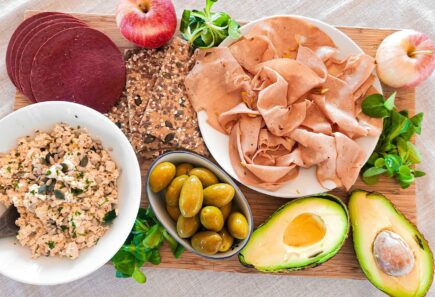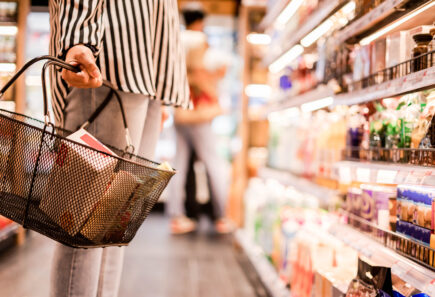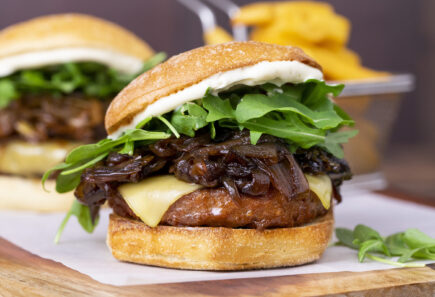Clear labelling
The Good Food Institute Europe’s policy team works to ensure rules for the labelling of alternative proteins across Europe are clear and help consumers to make informed choices.
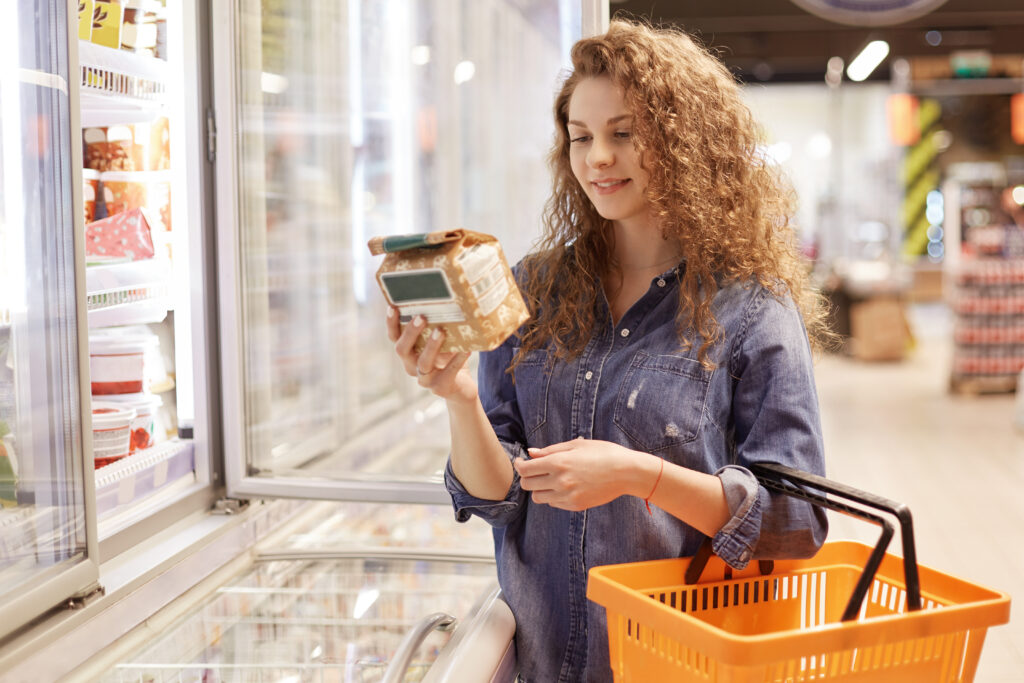
Why is clear labelling important for alternative proteins?
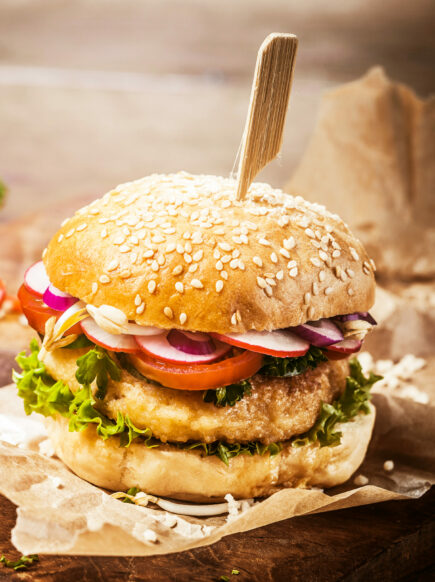
The way food is described and presented to consumers impacts on whether that food is seen as appealing, and by whom. The use of everyday language such as “veggie burger” and descriptions like “creamy” help people to know what to expect in terms of a food’s taste, texture and preparation.
As the popularity of alternative proteins has grown in Europe, so have attempts to impose restrictions on how they can be described and presented to consumers. Proposals have been considered at both the EU and national levels to ban plant-based meat and dairy from using widely-known and familiar names and descriptions.
“Everyone knows a burger can be grilled and served in a bun – but what would you do with a ‘plant-based disc’?”
Elena walden, gfi europe SENIOR policy manager
What are the labelling rules for alternative proteins in the European Union?
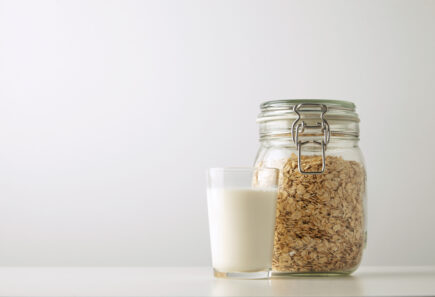
Under current EU law certain terms including “milk” and “yoghurt” cannot be used for plant-based dairy, even if they are accompanied with qualifiers such as “plant-based” or “vegan”. This decision was confirmed in this court ruling from 2017.
However, national courts across the EU have since reaffirmed that this ruling does not prohibit the use of adjectives or descriptors such as “alternative to yoghurt”, “cheese-style” and “creamy”.
How GFI Europe helped to defeat the veggie burger ban
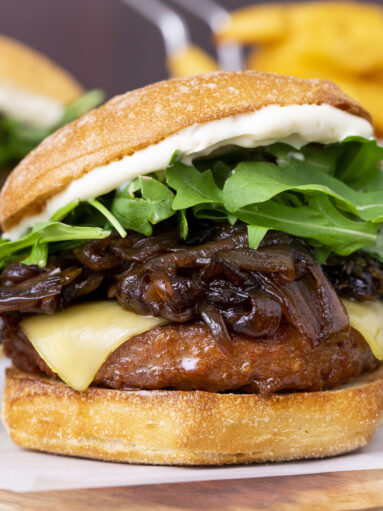
In 2020, the European Parliament considered plans to ban plant-based producers from describing their foods with everyday language like “burger” and “sausage”.
In the weeks before the Parliament voted on the veggie burger ban, we worked with allies to reach out directly to all MEPs to inform them of the risks the ban posed to the EU’s green ambitions.
We also coordinated a joint letter to MEPs from 13 international environmental, animal welfare and consumer groups, demonstrating that the proposals would contradict the EU’s climate commitments.
As a founding partner of the European Alliance for Plant-based Foods, we joined 49 other NGOs and businesses in arguing that the plans breached the bloc’s principle of proportionality.
Working closely with allies including ProVeg International, we raised the profile of the proposed ban in mainstream media outlets across Europe – prompting high profile politicians to wade in on the debate.
In the end, the difference came down to just 48 out of 705 votes, and everyday language like “plant-based sausages” was protected.

How GFI Europe helped to prevent further restrictions on plant-based dairy
When MEPs rejected the veggie burger ban, they voted in favour of extreme restrictions on plant-based dairy that could have banned companies from using helpful descriptors like “creamy”, or even from selling their products in cartons.
As the European Commission and EU member states considered the proposals, known as Amendment 171, our policy team worked with allies to ensure representatives of all 27 EU countries involved in the negotiations were thoroughly briefed on the damaging consequences of the plans.
We spearheaded a joint letter bringing together 21 NGOs to call for rejection of the proposal – leading environmental influencers George Monbiot and Greta Thunberg to share our messaging with over 5 million followers, and helping to secure high profile media coverage.
In May 2021, EU officials finally decided to abandon the plan altogether.
How GFI Europe ensures labelling rules are clear
GFI Europe brings together broad coalitions of NGO and industry actors to actively oppose proposals to unfairly limit labelling practices for alternative proteins, and advocate policies that support consumer choice.
What we do
- We inform and advise policymakers on the importance of transparent labelling rules for alternative proteins.
- We lead coalitions of NGOs, consumer groups and industry to oppose new proposals for labelling restrictions.
- We undertake research to better understand how consumers understand different terminology and labels for future alternative protein options.
- We inform, advise and advocate for transparent labelling rules for future alternative protein options which will come onto the EU market, such as cultivated meat.
How you can help
GFI Europe is 100% powered by philanthropy. Our work to protect plain language for alternative proteins is only possible thanks to the generosity of our global family of donors. With your support, we can ensure consumers are able to make informed and sustainable food choices.

Our labelling expert
Elena Walden leads our labelling advocacy, working with policymakers, NGOs, industry and consumer groups to advocate clear and fair alternative protein labelling policies that support consumer choice across Europe.

